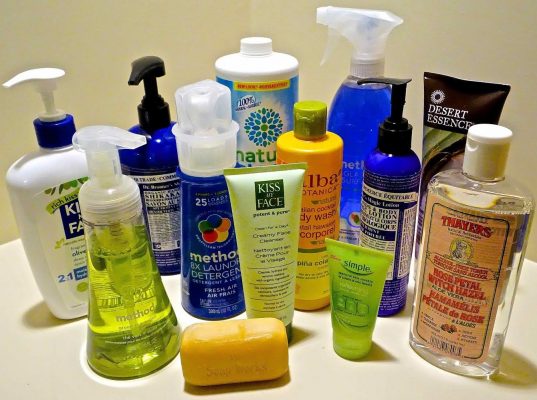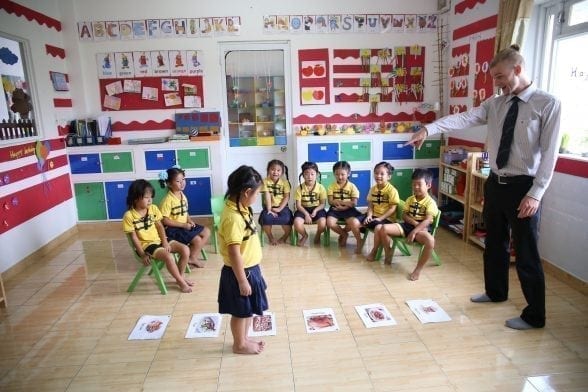Moving to Korea to teach English sounds like an adventure, and it is, but along with it comes many valid fears about what could go wrong. I talked to some of my friends here to find out what their concerns were before they made the move to Korea, what they did about them and how they managed after they got here.
Something everyone had in common was doing a lot of research. Whether it was watching Youtube videos from EatYourKimchi and ChoNunMigookSaram, contacting teachers already living in Korea, or reading blog posts by current and former expats, everyone made an effort to learn as much as they could.

Fear #1: I’ll get a bad school
Everyone worries about getting a ‘bad’ school. What if the kids are disrespectful, the co-workers demanding and the curriculum unteachable? An even more pressing concern is that they will treat you unfairly or cheat you out of money you’re rightly owed.
What you can do now: Get a current teacher’s email address from the recruiter or school, and email them. Ask them about the conditions at the school, what is expected of you and if they are paid on time and in full. Contacting someone this way isn’t always the best path to the truth however, as sometimes they may be asked to give the school a favorable review in return for something (if the school is dodgy). To counteract this, search on Facebook or LinkedIn to see if you can find any past employees of the school, and ask them for their honest opinion. Of course, just because another teacher liked the school doesn’t mean you will.
This advice is only applicable to those applying to a private academy (hagwon) as with EPIK or other government programs, you get assigned a school. However you do have less to worry about the legality of it all, as public schools do it by the book.
What to expect: Some of the teachers loved their school; some hated it. Unfortunately, until you are actually here, there is no way to know for sure what you’re getting into. There are teachers working at the same school who have completely different experiences, just because of differences in personality and working style. After you’ve done all your research, you just have to hope for the best. No one I spoke with had had contractual issues or encountered illegal behaviour, however if you do, this is not something you have to put up with and there are options for you to get out of your contract and find a better position. This Facebook group can help you with that.

Fear #2: I won’t make any friends
Life’s not much fun without friends to share it with, and you may worry it will be hard to make any friends in a new country. One of my friends who works in a small town was worried she would be the only foreigner in town, but some people in bigger cities worry that there will less opportunities to make friends with local Koreans.
What you can do now: If you’re coming with EPIK, it’s possible to connect with other teachers coming at the same time. They will also put you through an orientation where you will meet other teachers in the same boat as you. If you’re going the private academy (hagwon) route, join a few Facebook groups for your area (most larger places will have at least one, cities like Busan have a lot) and arrange to meet people before you’ve even arrived.
What to expect: On first arriving in Korea, they were lonely and overwhelmed. However everyone quickly met people and made friends, whether with co-workers (and then their friends) or through joining groups on Facebook. After meeting people and setting up a support network, all the issues that were making them feel overwhelmed become easier because there was someone to share them with and to get advice from.

Fear #3: I won’t be able to communicate or navigate easily
When moving to a country that doesn’t speak your language, it’s reasonable to be worried about how you will communicate with people and find your way around.
What you can do now: Study some Korean! While you don’t need Korean to get around in Korea, it will be helpful if you have learned to read the alphabet (Hangeul) and learned some basic phrases. Check out a post I wrote precisely for this reason: 10+ Useful Korean Phrases for Expats (and Travellers!). Korean people will appreciate your efforts to try and learn their language.
What to expect: All the teachers I spoke to had learned the Korean alphabet (Hangeul) and basic phrases by early on in their time here. Some had gone beyond that and attempted Korean study by themselves, or attended free classes. Mostly though, it had become evident that Korean language ability wasn’t really necessary and while helpful, was something that most didn’t consider worth the time required to learn, especially if only staying for one year. Koreans usually speak at least a small amount of English, and places like banks generally have an English-speaking staff member to help foreigners.
Initially almost everyone had trouble with finding places like the supermarket, knowing what restaurants to go to and working out how to get around. Most of my interviewees were private academy (hagwon) teachers, so they didn’t get much time in the country before being thrown headfirst into the job. This limits the time for relaxed exploration of the area beforehand, which can make things more stressful. However they said making friends helped, as people already living in the area showed them where to go and how to do things.

Fear #4: I won’t be able to get lots of things I get back home
Everyone worries about their favorite brands and comforts not being available in Korea. It’s enough that you’re moving to a new country and a new job, without having to worry about where you’re going to buy your toothpaste.
What you can do now: Get online and do some research. Pack stuff you know won’t be easy to find or will be expensive. Pack enough to last you a year or so (or until you know you’ll be back home again). Some common things people worry about are: clothes and shoes, toothpaste and deodorant. Women can add birth control, tampons and bras to that list. But don’t panic! Anything you forget can be found via the internet or by having someone back home send it to you. It’s not the end of the world if you miss something.
What to expect: While there are some things that are less common or more expensive, everything essential can be found if you know where to look and are willing to pay.
I brought enough toothpaste, deodorant, tampons and bras for about two years. This has proved useful as the selection of the first three is lacking and pricey, and bras here simply don’t fit. I also brought some New Zealand food products that I knew would be hard to find. Sadly I couldn’t bring steak and cheese pies, otherwise I would have filled an entire suitcase with them. I’m lucky in that I have no problems getting clothes or shoes. I’m around a US size 8-9, and usually the women’s shoes go up to 250mm or 255mm, which often fit me. However you can still get a lot of cool sneakers (and other unisex shoes) in men’s sizing with no issues. There are places to buy women’s shoes in larger sizes – look no further than Payless at Emart– however the selection is lacking. When it comes to clothes, there are stores like H&M and Forever 21, and also larger Korean clothing chains that cater to a more Western size range.

Fear #5: What if I’m a bad teacher?
One of the biggest concerns, is what if you turn out to be a terrible teacher? Teaching a room full of children can be a very daunting prospect, especially if you have no experience!
What you can do now: All you can do in this situation is be prepared! If you can afford it, taking an ESL teaching course such as TESOL, CELTA or TEFL is a great idea. This will help you upskill and improve your confidence in your ability. The internet is also full of resources! There are lots of websites dedicated to helping teachers with lesson plans and ideas for activities (Busy Teacher has been invaluable) and other teachers often share complete lesson plans with powerpoints and handouts included.
What to expect: Of course, finding out what kind of teacher you are is something you only discover once in the classroom. Some found they had an aptitude for it, and have developed into great teachers who love their job, whereas others (like me) found teaching just wasn’t for them. However as long as you can get on with the kids and let them have some fun, you’ll probably be fine (unless your kids are terrors, in which case, good luck). If you do find you’re someone who truly loves teaching, you may always worry if you’re a good enough teacher. I don’t think that’s necessarily a bad thing, as it keeps you learning and always giving your best.

Fear #6: I’ll get stared at or worse
Korea is a homogeneous society, almost everyone here is Korean, and everyone else are considered outsiders. Western women especially feel this pressure, as Korean women tend to be a lot smaller, and a lot of the clothing styles are very cute and unflattering to a curvier shape. Worse than being stared at though, is getting bullied for the way you look.
What you can do now: Koreans tend to be pretty straightforward and will tell you if they think you need to lose weight, put on some makeup or get a haircut. Be prepared for stares, comments and unsolicited advice. At some point it will happen to you, so when it does, at least being forewarned may help soften the blow.
What to expect: People stare at me every time I leave the house. Not everyone of course, but it happens a lot. I’m going to let you in on a secret–you get used to it. According to a recently published article from Yonhap News Agency, the amount of foreigners in Korea has now reached 2.65 million, making us a whopping 5.17% of the total population. With more than half of that number being Chinese and other Asian ethnicities, most Westerners are going to stand out in the crowd for a while to come.

Fear #7: I’ll get homesick
Everyone gets homesick from time to time, but the fear that you’ll be crippled with longing for your home country the minute that something goes wrong is a legitimate concern–especially if you’ve never been overseas or away from home before.
What you can do now: A great way to combat homesickness is to bring a few comforting things from home to decorate your apartment with. Choose things that will be easy to pack but have a presence, like a quilt or a picture for the wall, to make you feel immediately more at home. The other thing you can do, is be prepared for these feelings and understand why you’re feeling this way. A Skype call with someone back home can help, so before going, see if you can schedule a few calls with friends and family for that first month.
What to expect: If you know you’re the kind of person who misses home, then be prepared for that to happen. If you’ve never lived in a non-English speaking country before, like I hadn’t, then be ready to be stressed and confused when you first get here, and a little overwhelmed. Often being lonely makes us feel more isolated, so even if you don’t feel like it, try and get out and be social as soon as possible. When you do inevitably miss home, hopefully it won’t be as bad as you anticipated. After the first few weeks, I was surprised by how little I missed my life back home, and almost two years later, I’m still surprised by how normal life in Korea has become.

It’s all about attitude
Without exception, everyone I spoke with faced challenges after moving to Korea.
There will always be challenges, no matter how well you have prepared. You either face the challenges and deal with them in a positive way (while focussing on the good things), or you let the difficulties outweigh the benefits, get you down and ruin your time in Korea. The former are generally the people who stay on another year or more, while the latter can’t wait to leave. If you prepare well and come with the right attitude, you will have an awesome time in Korea!





